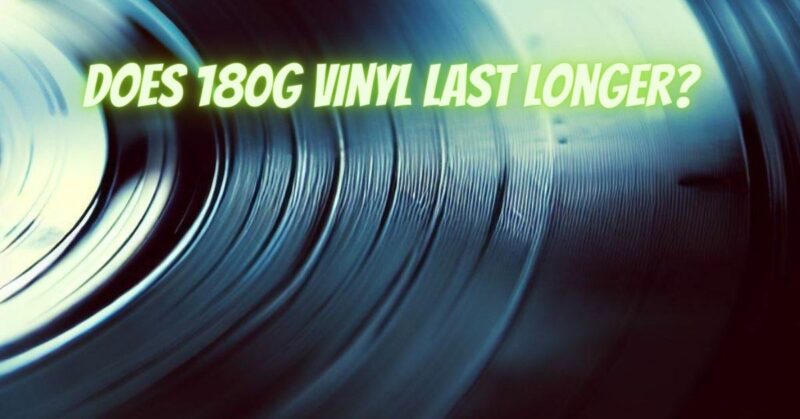Vinyl records have made a remarkable resurgence in recent years, captivating audiophiles and music enthusiasts with their warm, analog sound. As the demand for vinyl continues to grow, manufacturers have introduced variations in vinyl weight, with 180g vinyl gaining popularity for its perceived durability and enhanced audio fidelity. But does the weight of a vinyl record truly impact its longevity? Let’s explore this topic to understand whether 180g vinyl indeed lasts longer than its standard counterparts.
Understanding Vinyl Weight
Vinyl records are traditionally pressed using polyvinyl chloride (PVC), a durable material capable of preserving audio fidelity over time. The weight of a vinyl record refers to the thickness of the vinyl disc, typically measured in grams per square meter (gsm) or grams per square inch (g/sq in). Standard vinyl records typically range from 120g to 140g, while 180g vinyl is noticeably thicker and heavier.
Perceived Benefits of 180g Vinyl
The popularity of 180g vinyl stems from several perceived benefits:
- Enhanced Durability: Proponents of 180g vinyl argue that its thicker construction makes it less prone to warping and damage compared to standard-weight vinyl. The added thickness provides increased stability and resistance to environmental factors such as temperature fluctuations and handling.
- Improved Sound Quality: Some audiophiles believe that 180g vinyl offers superior audio fidelity due to its denser composition. The increased mass of the vinyl disc may reduce resonance and vibrations, resulting in a quieter playback experience with less surface noise and distortion.
- Collectibility: Collectors often value 180g vinyl releases for their premium feel and perceived higher quality. Limited edition and audiophile pressings are frequently offered on 180g vinyl, adding to their appeal among enthusiasts.
Examining Longevity
While 180g vinyl may offer certain advantages in terms of durability and perceived quality, its impact on longevity is less straightforward. The longevity of a vinyl record is influenced by various factors, including manufacturing quality, storage conditions, and handling practices. Here are some considerations:
- Material Quality: The longevity of a vinyl record depends primarily on the quality of the vinyl material used in its manufacturing. High-quality PVC formulations and precise pressing techniques contribute to the longevity of vinyl records, regardless of their weight.
- Storage Conditions: Proper storage is crucial for preserving the lifespan of vinyl records. Exposure to direct sunlight, high humidity, and extreme temperatures can accelerate deterioration and cause warping, regardless of the vinyl weight.
- Handling: Careful handling and maintenance play a significant role in prolonging the lifespan of vinyl records. Avoiding excessive handling, using clean playback equipment, and storing records in protective sleeves can help prevent damage and extend longevity.
While 180g vinyl may offer certain benefits in terms of durability and perceived quality, its impact on the longevity of vinyl records is not definitive. The longevity of a vinyl record is influenced by a combination of factors, including material quality, storage conditions, and handling practices. While 180g vinyl may provide added stability and resistance to warping, its longevity ultimately depends on how well it is manufactured, stored, and maintained. By following best practices for vinyl care and storage, enthusiasts can ensure the longevity of their vinyl records, regardless of their weight.


